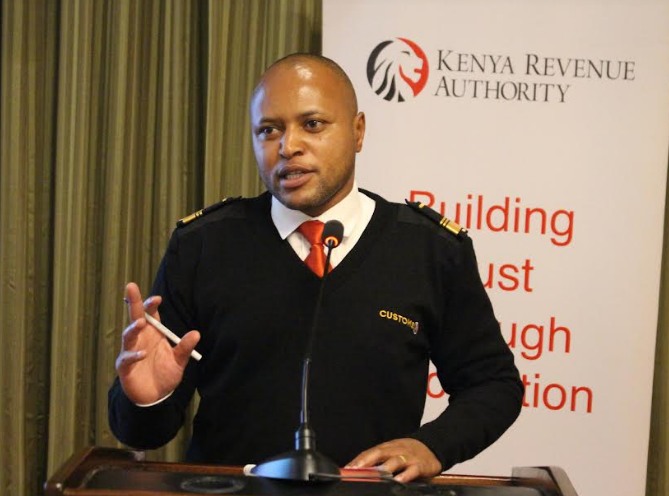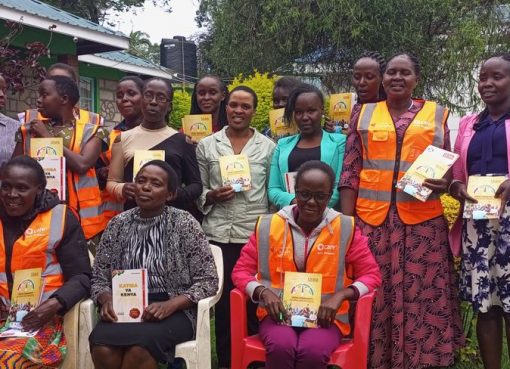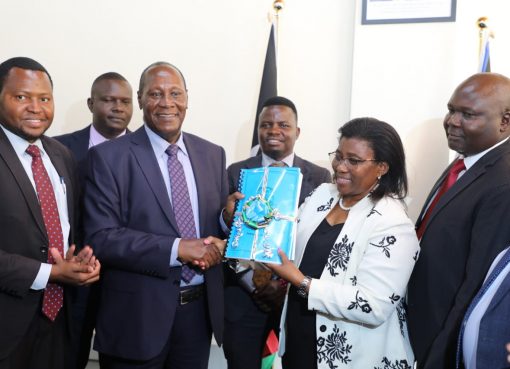The Kenya Revenue Authority (KRA) has held an engagement session with Media practitioners with the aim of creating awareness on the compliance support framework for Micro, Small and Medium Enterprises (MSME’s) in the country.
Speaking at the event, Joakim Mwawasi from KRA Customs and Border Control Department highlighted the roles of customs, which include Society Protection through Law enforcement on Prohibitions and restrictions, facilitating legitimate trade, Revenue Collection and Collection of trade statistics.
Additionally, he said that for customs, MSMEs are businesses operating in limited cross borders that bring goods through loose container loads (LCL), consolidation by land, sea, or air through postal courier services with a value of a single transaction at USD 2000 or below according to KRA standard.
He emphasized that the existing trade facilitation initiatives for the MSMEs sector include a simplified trade regime and clearance of goods under a consolidated framework, while short-term and long-term initiatives that are to be implemented include a self-clear solution for consolidated cargo, Automation of Form F88 for clearance of accompanied baggage, cross-border self-clear solutions, and de-consolidated centre establishment, respectively.
“The initiative for the MSMEs aims to benefit the trader by expanding markets, boosting productivity, enhancing security, lowering the cost of business expenses, increasing revenue, and bringing a competitive price in global markets,” he said.
He added that KRA has implemented an initiative that promotes legitimate trade and improves border management and security, including the Authorised Economic Operator Programme (AEOP) that enhances trade through simplifying customs procedures and reducing its clearance times and Pre-Arrival Processing (PAP), which releases legitimate goods faster upon arrival.
Other initiatives include an integrated Customs Management System (iCMS), which processes customs declaration, revenue assessment, and payment; intelligence-based risk management and post-clearance audit; and a Regional Electronic Cargo Tracking System (RECTS) that enables real-time tracking of transit goods from port to final destination via an online digital platform; and the installation of 33 cargo and baggage scanners to aid in non-intrusive inspection of goods and reduce clearance timing of goods.
“RECTS offers benefits including decongestion of the border, improved transporter turnaround time, reduced clearance time, improved transit accountability, trade facilitation along the Northern Corridor, enhanced cargo security, and real-time location of goods,” Mwawasi explained.
At the same time, he said that the establishment of the seven One Stop Border Posts (OSBP) initiatives in Malaba, Busia, and Namanga, among others, has led to the growth of customs revenue and enabled KRA to enhance its efficiency and improve revenue collection by improving border crossing speed and business competitiveness with other countries.
“MSMEs are allowed to share means of transport, including containers and trucks, to transport their goods into the country at a lower cost, and all goods must be declared for tax and regulation purposes,” he stated.
The documents required for SMEs during the customs simplified import process include a simplified certificate of origin, a commercial invoice, and relevant permits for verification and authentication, which are processed through an automated one-stop system known as iCMS for payment and Post Clearance Audit.
KRA Domestic Taxes Department Manager Wanja Wangondu stated that to be tax compliant, one must register when required, file returns on time, report complete and accurate information to determine tax liability, and pay all owed amounts when due.
She announced a tax compliance support framework for SMEs that includes a simplified tax regime which consists of a Turnover Tax (TOT) rate of 1.5 percent for businesses with annual revenue of Sh1 million–25 million and Monthly Rental Income tax (MRI) of 7.5 percent of rent received of Sh288 million–Sh15 million.
“Digital Filing and Payment platforms include iTax and M-Service and an alternative dispute resolution, which is independent review of objections and expediting resolutions of tax disputes,” she said, adding that there are 54 office stations, a premier tax office for high-net-worth individuals, and a presence in 53 Huduma Centers Nationwide.
She added that KRA, through collaboration with stakeholders, helps in capacity-building programmes through trade, business, and professional associations and account and relationship management programs.
“Over the last three years we have been running a tax voluntary disclosure programme and offered a waiver on penalties and interest that ended in June 2023,” she said, adding that TIMS and Etims mainly improve VAT performances and Compliance.
KRA recorded an 11.1 per cent growth in revenue collection equivalent to Sh2.4 trillion and 95.5 per cent as a performance rate in the financial year 2023/2024.
By Sharon Atieno




